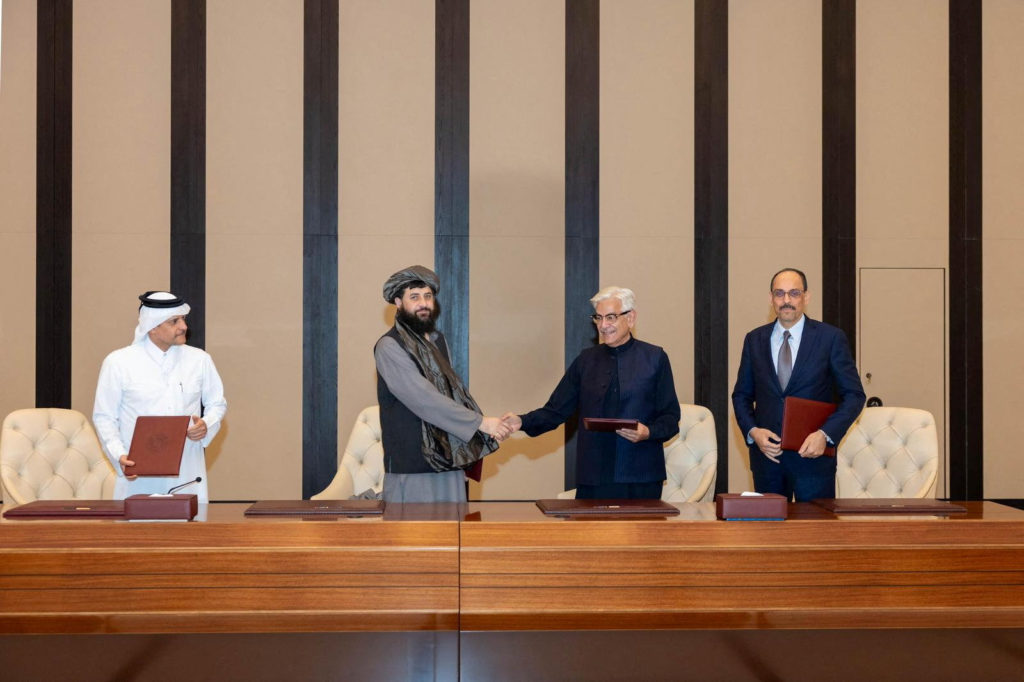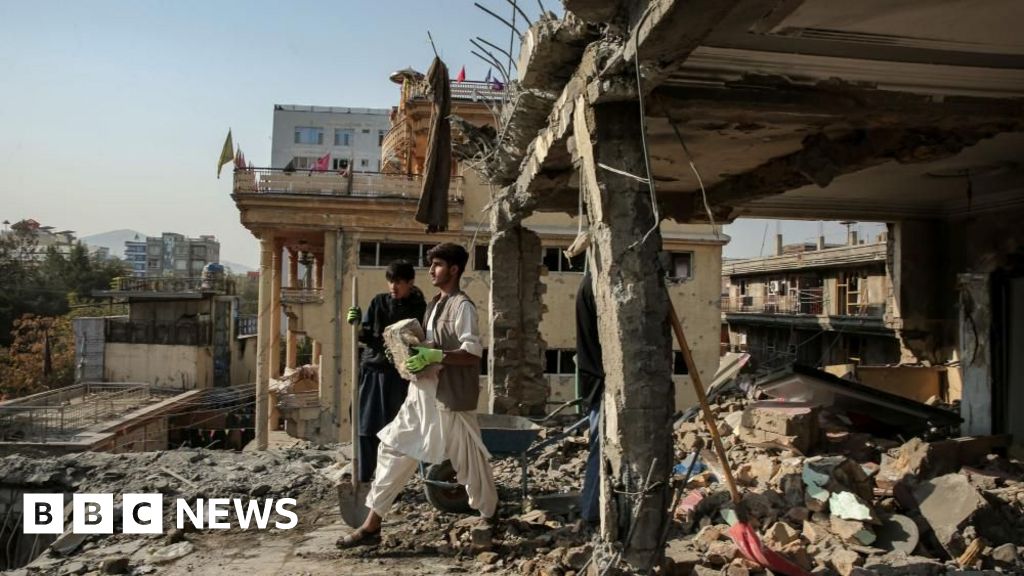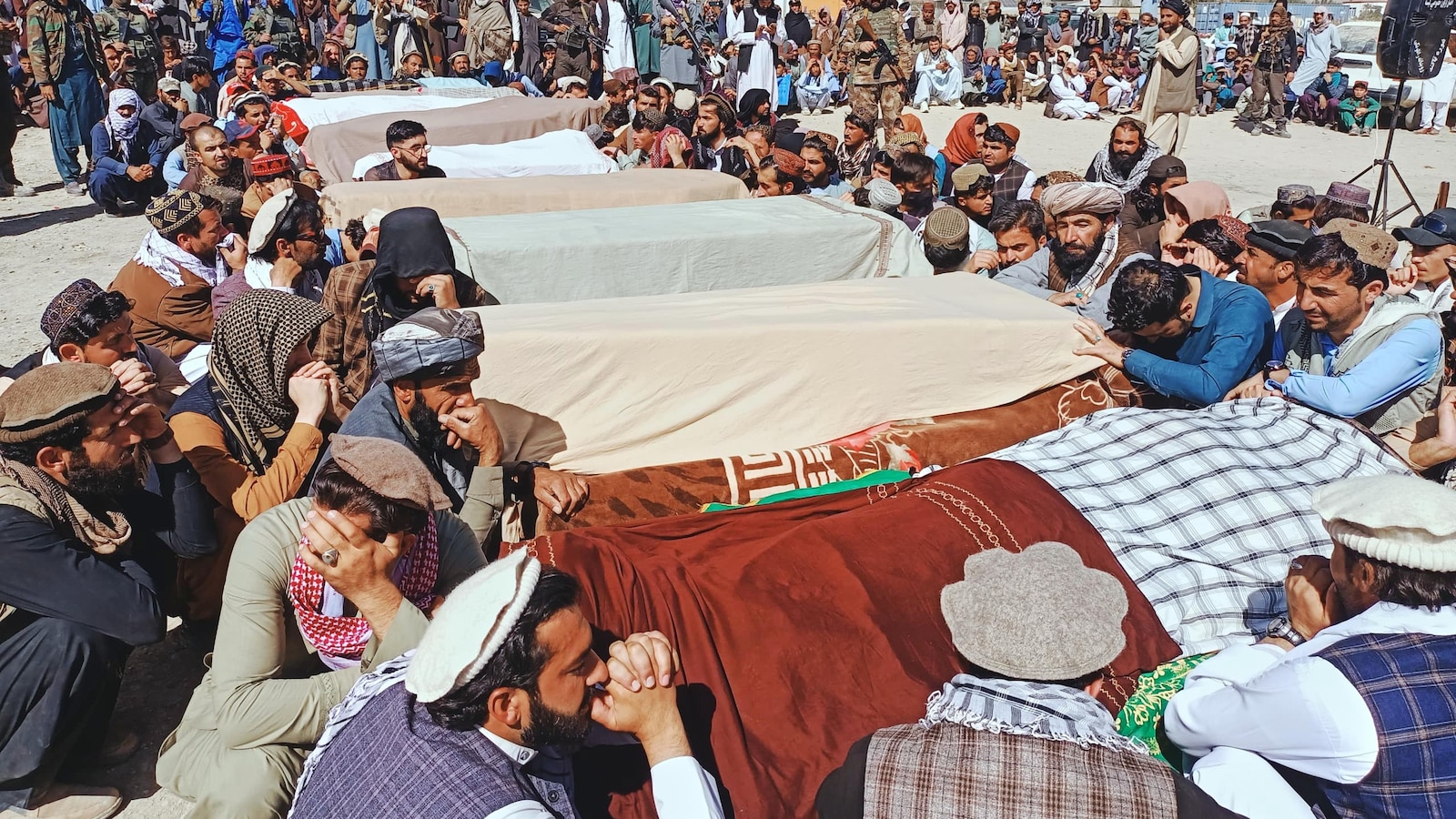Afghanistan and Pakistan Agree to Ceasefire, Establish Review Mechanism Amid Border Tensions
Afghanistan and Pakistan agreed to an immediate ceasefire, mediated by Qatar and Turkey, to de-escalate border violence and address militancy, establishing a mechanism for bilateral claims.

Afghanistan and Pakistan agree to respect ceasefire mediated by Qatar and Turkey

Afghanistan and Pakistan pledge to respect ceasefire

Taliban and Pakistan agree to ceasefire after days of deadly clashes

Afghanistan, Pakistan pledge to respect ceasefire after days of deadly fighting
Overview
Afghanistan and Pakistan have agreed to an immediate ceasefire, mediated by Qatar and Turkey, to pause hostilities and de-escalate escalating violence in their border areas.
The agreement follows days of deadly fighting and aims to address a surge in militancy Pakistan has experienced since 2021, coinciding with the Taliban's control.
Afghanistan denies harboring militants responsible for attacks in border areas, with the Taliban also denying providing haven to groups attacking Pakistan.
Both nations pledged to respect the ceasefire, which was reached after talks held in Doha, facilitated by the mediation efforts of Qatar and Turkey.
A mechanism will be established to review bilateral claims and ensure the effective implementation and sustainability of the ceasefire, with follow-up meetings scheduled.
Analysis
Center-leaning sources cover the Afghanistan-Pakistan ceasefire neutrally, focusing on factual reporting of the agreement and its immediate context. They present both nations' perspectives and accusations without endorsing either, providing a balanced overview of the conflict's escalation and the diplomatic efforts. The language remains descriptive, avoiding loaded terms, and includes the human impact without sensationalism.
FAQ
The agreement includes an immediate halt to attacks from Afghanistan on Pakistani soil, a pledge to respect each other's territory, and a commitment to resolve disputes through dialogue while avoiding targeting security forces, civilians, or critical infrastructure.
Qatar and Turkey mediated the ceasefire talks that led to the agreement between Afghanistan and Pakistan.
A bilateral review mechanism will be established to review claims and ensure effective implementation and sustainability of the ceasefire, with follow-up meetings planned, including one in Istanbul on October 25.
Challenges include the Taliban's limited control over militant groups like the Tehrik-i-Taliban Pakistan (TTP), which may reject ceasefire demands, and continued attacks could lead to Pakistan resuming strikes; sustained cooperation by the Afghan government is also crucial.
Trade between the two countries had been completely suspended due to cross-border attacks, and the ceasefire aims to create conditions that could eventually lead to resuming trade, as Afghanistan depends on Pakistan for import and export routes.
